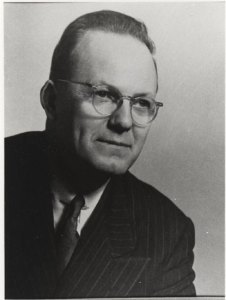Roland Boer's Blog, page 64
August 6, 2015
Only the people are immortal
This observation speaks much not only of role of the communist party (as part of a dialectic of transcendence and immanence), but also of the direction of any veneration:
The leaders come and go, but the people remain. Only the people are immortal, everything else is ephemeral. That is why it is necessary to appreciate the full value of the confidence of the people. (Works, vol. 14, p. 302)


Soviet historiography
As I read throughHistory of the Communist Party of the Soviet Union (Bolsheviks), commonly known as theShort Course, I am increasingly intrigued by the genre of communist historiography. This was the first time a communist party was in power and had the power to write a history. Examples of course continue today, but this first effort is most intriguing. Earlier, Stalin had already begun commenting on efforts to write such histories, giving advice to the writing teams. For instance:
Withoutth...
July 31, 2015
The benefits of Stakhanovism: pocket watches
I must admit I have a love of pocket watches, carrying one of my collection around with me at all times. So I was thrilled to read this, an address given to collective farm workers from Tajikistan and Turkmenistan in December, 1935:
Secondly, that the government has decided tomake a gift of an automobile truck to every collectivefarm represented here and to present every participantat this conference with a gramophone andrecords (applause) and watches – pocket watches forthe men and wrist wat...
An achievement of Stakhanovism: increasing the speed of trains
In a long and important piece on the Stakhanovite movement, Stalin has this to say about the speed of trains. Keep in mind that the movement was part of the extraordinary and rapid transformation achieved through industrialisation and collectivisation:
We shallhave in the first place, to persuade these conservativeelements in industry, persuade them in apatient and comradely manner, of the progressivenature of the Stakhanov movement, and of the necessityof readjusting themselves to the Stakha...
July 29, 2015
The core of Stakhanovism
I am delving now into the profound shifts in the understanding of human nature during the 1930s in the Soviet Union. Stakhanovite passion and the repeated purges of ‘red terror’ were two sides of the same process, which we may understand as a tension between the Pelagian and Augustinian approaches to human nature. They were driven by extraordinary and widespread enthusiasm for the massive project of industrialisation and collectivisation. On the Stakhanovite side, the underlying motive is bes...
July 28, 2015
Stalin and the Chinese sovereign fund
China continues to accumulate an eye-watering sovereign fund (now over four trillion dollars), which still confounds those who work within the assumptions of neoliberal economics. Even though the situation in China today is much more developed that in the Soviet Union, an earlier experience of the profound complexities of socialism within a capitalist world may provide some insights into the reason for such a fund. In 1925, at the fourteenth congress of CPSU, Stalin argued as follows:
That is...
July 25, 2015
Chinese saying (and why I avoid meetings and tire of conferences)
July 22, 2015
Goulash and solidarity
This piece by Zsuzsanna Clark reflects on growing up under communism in Hungary and compares it to her life in the UK today. It is cross-posted from the Prole Center, and apparently appeared first in the Guardian, of all places. I am intrigued by this piece (although not persuaded by its conclusion), since I am increasingly interested in communism in power. Most analyses we have today analyse bourgeois and capitalist power and modes of resistance to it, but relatively few deal with communism...
July 21, 2015
Stalin on fascism and racism
Earlier, I posted about Stalin’s strong stand against anti-semitism and the tough penalties for any form of racial abuse in the USSR. Here is another piece.In his report to the seventeenth congress of the CPSU(B), Stalin once again comments on fascism, in the context of Hitler’s recent seizure of power in Germany.
Still others think that war should be organised by a “superior race,” say, the German “race,” against an “inferior race,” primarily against the Slavs; that only such a war can provi...
July 14, 2015
Missionary once won the Stalin Peace Prize
James Endicott (1898-1993) was both a Christian missionary and a communist. Of Canadian background, he was ordained as a minister in the United Church. His claim to fame was active support of the communists leading up 1949 and then, back in Canada after more than two decades in China, speaking and agitating openly for support of the PRC. He was awarded the Stalin Peace Prize in 1952, for his work towards peaceful coexistence between communists and Christians.
This was a meeting between Endi...
Roland Boer's Blog
- Roland Boer's profile
- 41 followers







